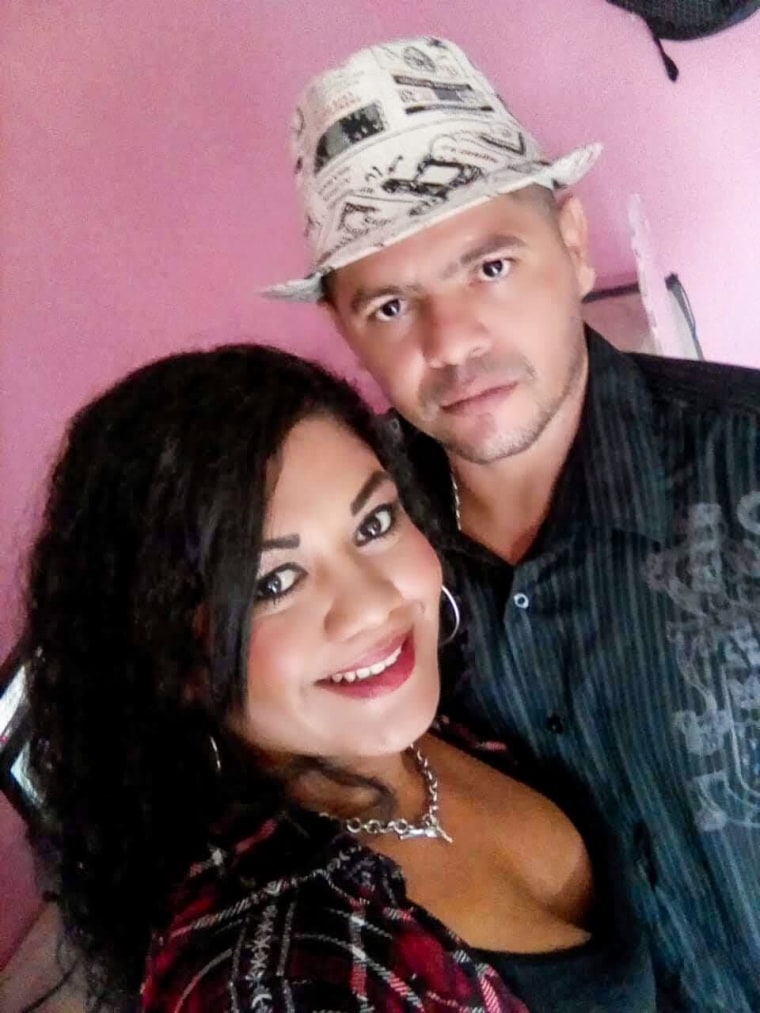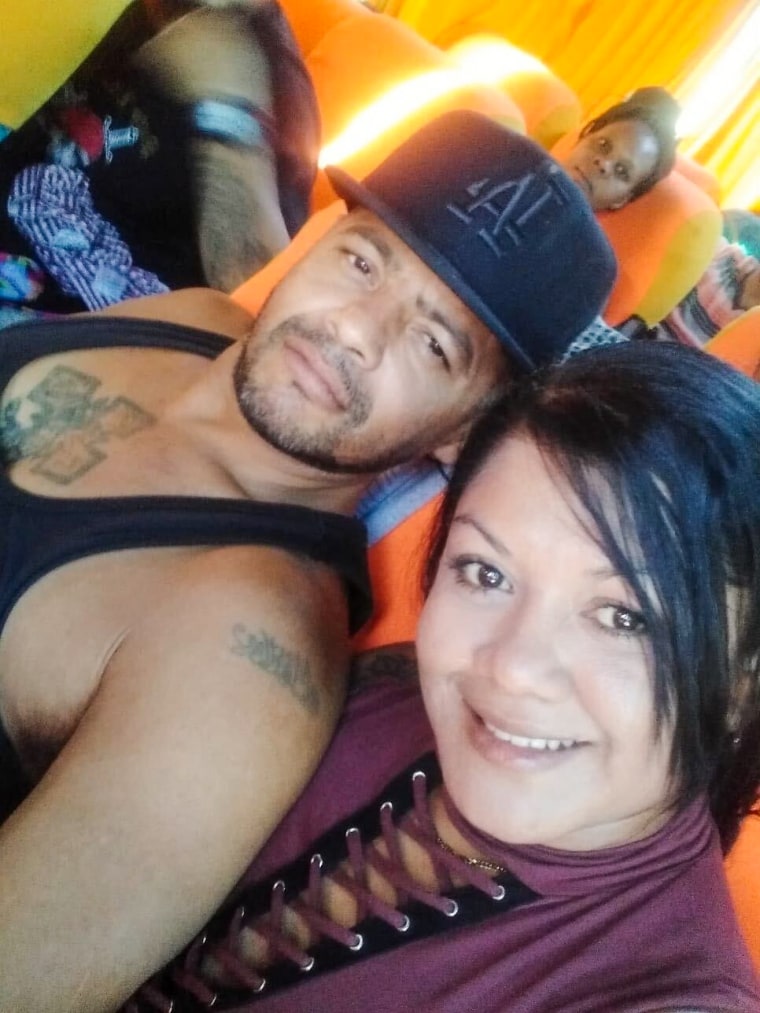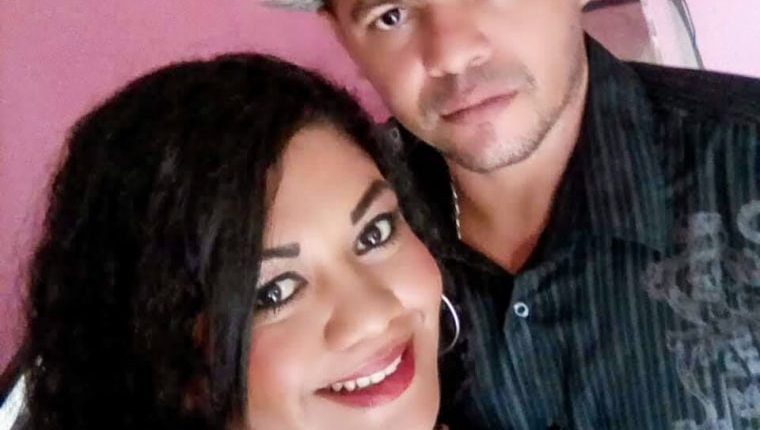More than 2½ months after an asylum-seeker from Nicaragua died in immigration custody, his family say they have more questions than answers about the circumstances surrounding his death. He had filed grievances alleging physical mistreatment by the facility’s staff and had also repeatedly complained to his family.
Ernesto Rocha-Cuadra, 42, died June 23 after having spent over a year in the Central Louisiana ICE Processing Center in Jena, Louisiana, as he waited for his immigration case to be reviewed.
An ICE panel had recommended him for release in November, but officials at the detention center declined to release him, according to attorneys and immigrant advocacy groups, NBC News reported in June.

Notes from ICE’s medical records the family provided to NBC News indicate Rocha-Cuadra was found unresponsive, sitting in a chair. He was placed on oxygen and given naloxone, a medication used to reverse the effects of opioids. The drug is commonly administered in emergency situations when people are unresponsive, regardless of whether they have used drugs. His brother said the coroner told him that an initial drug test was negative.
Once Rocha-Cuadra became responsive, he was taken to the emergency room at LaSalle General Hospital and arrived in “stable condition.” Shortly after, he lost consciousness, went into respiratory arrest and then cardiac arrest, which ICE listed as the preliminary cause of death. Resuscitation attempts failed and he was declared dead at 2:59 p.m., according to the notes.
For more from NBC Latino, sign up for our weekly newsletter.
Rocha-Cuadra’s family, who have been living in the Los Angeles area for over 30 years, said it took three days for them to find out he had died.

According to the family’s account, the day after Rocha-Cuadra died, one of his brothers, Frank Rocha-Cuadra, received a call from a detainee who was worried that Ernesto had not returned to detention and wanted to know whether the family knew how he was doing. Not aware that anything had happened, the family began calling the detention center but kept getting a recorded message until they got through on June 26, a Monday.
“I got transferred to someone and when I gave him my brother’s information, he said: ‘Let me pray for the family. I’m so sorry,’” said Frank. “So right then and there he told me that my brother had passed away.”
It wasn’t until 4 p.m. that day that ICE called his mother notifying them of Ernesto’s death, Frank Rocha-Cuadra said.
Allegations and questions
According to the ICE medical records provided by the family and a more condensed version of his record ICE sent to NBC News, Ernesto Rocha-Cuadra had been physically tortured by authorities in Nicaragua over a four-month period in 2020. He was on medication for depression and anxiety, and there was documentation of a right-hand fracture and a history of issues with his hand and wrist.
Family members and his fiancée said Rocha-Cuadra had complained to them of being mistreated since he arrived at the ICE processing center, which is owned by a private prison firm, the GEO Group. The company runs the day-to-day operations while ICE is responsible for medical services.
For more from NBC Latino, sign up for our weekly newsletter.
Rocha-Cuadra filed numerous grievances with ICE while in detention making allegations of abuse. The grievances became part of a habeas corpus motion he filed, which allows detained individuals to go before a judge to challenge their detention. NBC News obtained the habeas corpus petition from Homero López, executive director of Immigration Services and Legal Advocacy [ISLA] in New Orleans who was representing Rocha-Cuadra at the time.
In one grievance filed on Sept. 2, 2022, Rocha-Cuadra described being in “EXCRUTIATING pain” and alleged that the detention center’s medical center called an ambulance but the GEO staff “refused” and said they would take him themselves in their car. “NEXT THING I REMEMBER WAS WAS COMING WAKEING UP WHEN THEY THREW ME IN THE SUV AND ME HITTING MY HEAD AND THEY THREW ME IN SHACKLED FROM HEAD TO TOE ON MY BACK AS THE CAMERA WILL SHOW VOMITING AND CHOKING ON MY SELF .. THINK I WAS GOING TO DIE.”
According to the petition, in another grievance filed the same day, Sept. 2, 2022, Rocha-Cuadra stated that a sergeant and a lieutenant went to his pod and started recording with their phones. He asked to be moved to another cell or that they close the flap between him and his neighbor; in previous grievances he had complained that his neighbor was throwing urine and feces at him through the flap. “They came in with riot gear and attacked me,” he wrote in the Sept. 2 grievance. He said they used excessive force that resulted in bruising all over his body. According to the petition, on that same day he filed a grievance saying an inmate assaulted him seven times in front of GEO staff.
He also complained about being left in solitary confinement for prolonged periods of time, according to the petition.
ICE declined to comment on Rocha-Cuadra’s grievances against the facility.
The GEO Group said it cannot comment on specific cases regarding individuals in ICE custody, including grievances.

Glenda Pérez, Ernesto Rocha-Cuadra’s fiancée, said that during the last couple of weeks before his death, things did not seem quite right. His phone calls went from 30 minutes to three minutes the last two weeks he was alive. On their last video call, she and Rocha-Cuadra’s mother said they saw he had a cast on his arm that went up to his underarm, though that is not in the medical records sent to NBC News.
Family members said that when they viewed his body, he had bruises around his face. Pérez said that when she received Rocha-Cuadra’s belongings, there was blood on a T-shirt.
His family insist they deserve to know more about what took place inside the facility in the days and moments before he died at the hospital.
The autopsy report is not yet complete, but Frank Rocha-Cuadra said the coroner told him a drug test was negative. The family filed Freedom of Information Act requests for records from ICE, like camera footage from inside the facility and a list of grievances that Rocha-Cuadra had filed at the facility regarding his treatment there.
ICE denied all the records requests, citing an open investigation, according to Jeremy Jong, a staff attorney with Al Otro Lado, an immigrant legal advocacy organization. The family has appealed the decision, arguing that it is not the type of investigation that would allow immigration officials to withhold records. The appeals are pending.
A life in the U.S. — and then a return
Rocha-Cuadra spent most of his life in the U.S. He came as a young boy in the 1980s and became a legal permanent resident when he was 11 years old. He and his family settled in the Los Angeles area, where he grew up.
“He was always looking out for me,” his mother, Martha Rocha-Cuadra, said. “He even translated for me during medical appointments.”
After some run-ins with the law, including convictions for marijuana possession, second-degree burglary and driving under the influence, Rocha-Cuadra was deported to Nicaragua in 2009.
He settled in the capital, Managua, where he worked at call centers for American companies. He met Pérez, who owned an upholstery business, and the two started a 13-year relationship.
In 2018, as Nicaraguan President Daniel Ortega grew more authoritarian, the couple took part in nationwide street protests that quickly turned violent. They also participated in smaller subsequent protests, and Pérez said Rocha-Cuadra was briefly detained by authorities. In 2022, she said, there was an order for Rocha-Cuadra’s arrest in Nicaragua, and that’s when the couple decided to travel to the U.S.-Mexico border, a two-month ordeal, and seek asylum in the U.S.
Source: | This article originally belongs to Nbcnews.com










